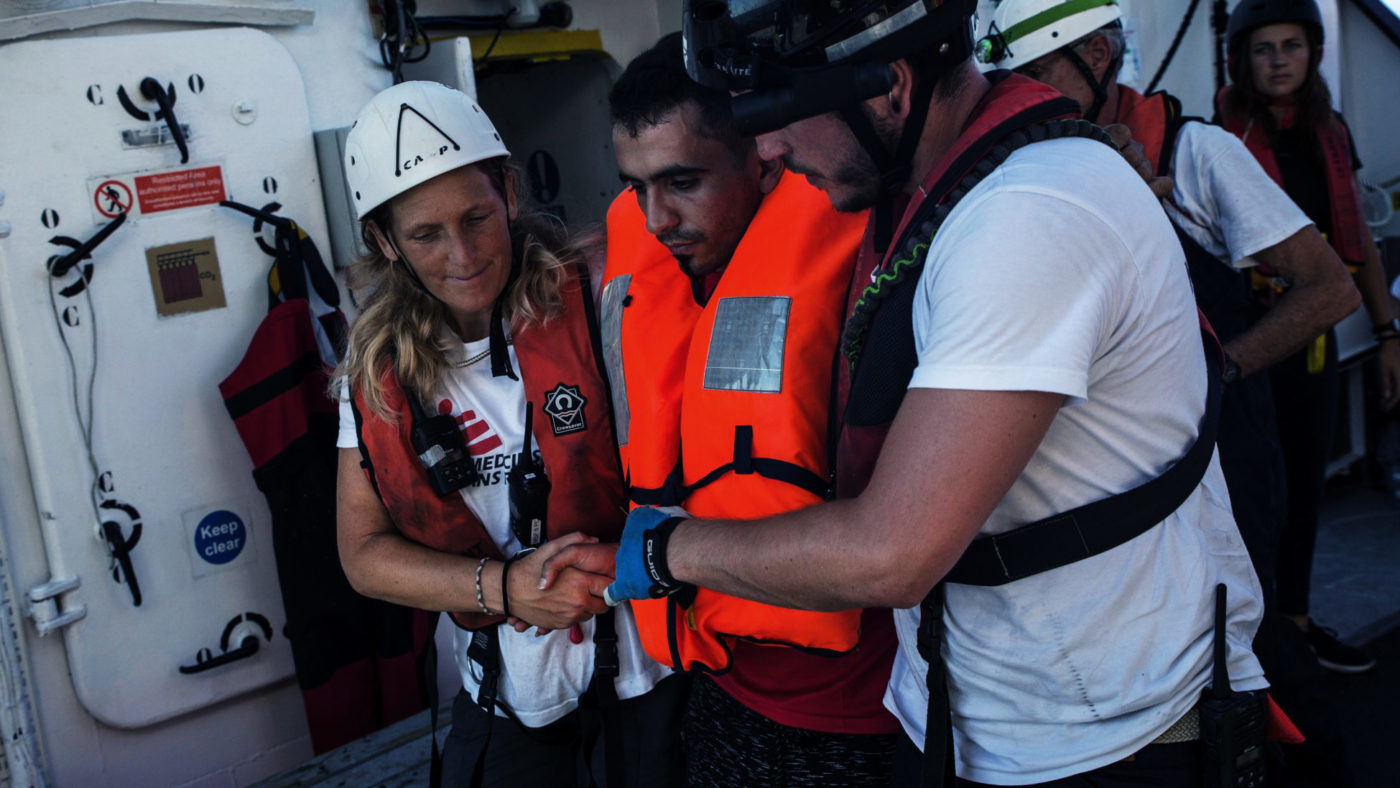In the West, we feel guilty about being prosperous, so we create companies to rid us of our negative sentiments. We call these firms “charities”, but in reality they’re businesses like any other. In the UK, a charity is classed as “a company limited by guarantee”, which means it can’t generate a profit, nor can it be monitored by shareholders. Charities operate with the most basic propaganda tool of all: the image. They invite us to hand over money by showing us films or photographs of good deeds being done and of the needy being helped.
The image is enough to trigger the donation. We don’t check to see whether help is actually being given, or good genuinely administered. We just hope it is. It’s a spiritual exercise. We contemplate the image, open our wallets and receive absolution.
Concealed within this sacrament is an embarrassing incentive: flattery. Charities like to congratulate us on being rich enough to be generous, and on being properly dressed as well. You’ll notice that an effective campaign will usually show helpless, semi-naked, backward people being rescued by strong, healthy, advanced people who are fully clothed.
The image reminds us that we are mature and evolved human beings, but that they aren’t. And we choose to help them because we are supreme – or at least that’s the myth to which we subscribe. Superman saves the world (usually Africa), and we hand over fortunes to the charities that perpetuate this fantasy and guide us through its comforting and repetitive picture book.
Africans who arrive in Europe for the first time find this astonishing. Europe gorges itself on images of a continent which Africans themselves don’t recognise. For them, Africa is vigorous, affluent, optimistic and successful. But for Europeans it’s a never-ending nightmare, a blighted mud-hut wilderness, where crops fail, children starve and dead livestock are picked over by vultures. And then a Landcruiser rolls up and a gap-year team from Norway climbs out and digs a water-hole. In Norway, incidentally, Norwegians don’t dig water-holes. They build a reservoir, but then Africa is the “third world”, so it gets a third world service.
In our minds, even today, Africa is a shrine to Western supremacy, exactly as it was back in the bad old days of empire.
It’s not just charities that keep Superman active. When a celebrity like Madonna or Angelina Jolie buys an orphan, they go to Africa, or Asia sometimes. But they never visit a local supplier, even though there are plenty of poor kids in America. Subconsciously these celebrities assent to the Superman myth which preaches that the West is rich and everywhere else is poor. And there are commercial considerations too – Madonna and Angelina are smart enough to know that treating the ghetto as a pet shop would alienate their American customers, so they fly to Africa where their customers are fewer. And they purchase one baby, or maybe two, which is enough, symbolically, to “save Africa”.
It’s an odd feature of the Superman myth that any white person who does anything good in Africa, no matter how piffling, does it to “all of Africa”. There seems to be a wrinkle in Africa’s geomagnetic field, a sort of charity kink that magnifies your good deed exponentially as soon as you leave African airspace. You helped one African but it feels like fifty. You donated a wind-up radio but it might as well have been a couple of hundred in cash. You saved one HIV victim but really you saved a thousand – perhaps because that’s how many times you’ll mention it.
The Superman myth is helping to fuel the migrant crisis in the Mediterranean. The images are highly valuable to charities because they’re dramatic and simple, and the visuals are excellent – poor Africans in rags being rescued by competent Westerners in the appropriate togs. Charities working in the Med have developed a cold-eyed “pluck-and-dump” strategy. Pluck the migrants from the waves, then dump them somewhere. End of story. The migrant is saved, photographed and then discarded when their use has been exhausted.
What happens next is somebody else’s job, because the second chapter in the story – integration – has tedious photographs which don’t flatter westerners. It would be almost impossible to extract a donation with an image of a migrant eating some United Nations soup, training as a traffic warden, putting on a high-viz jacket or receiving an Uber licence. Where’s Superman there?
So, fewer charities are helping migrants to settle. And there are thousands of these pluck-and-dump victims stranded in European cities. If you visit Paris, you’ll find a quasi-Dickensian underclass roaming the streets and kipping under bridges. Most are male, under 30 and lacking the tools needed to prosper – skills, employment, family connections and language abilities – because the charities can’t extract any further profits from them after the pluck-and-dump trick has been pulled.
And anyway, charities have work to do. They’re better off in the Mediterranean people trafficking. And that’s the only word for it. If you enrich yourself by transporting the vulnerable from one continent to another, you’re a slaver. And if you give money to these charities, you are too.


